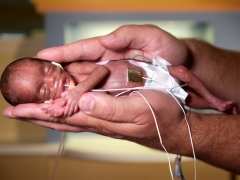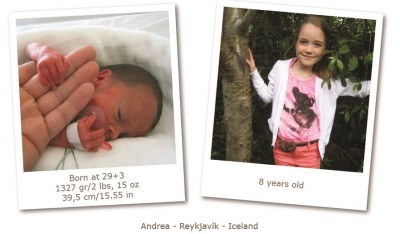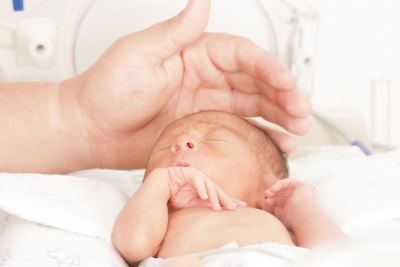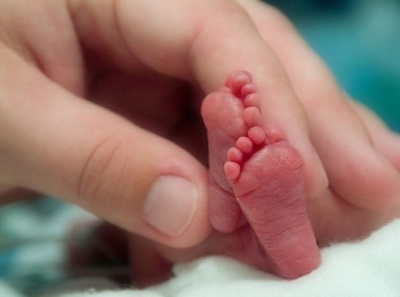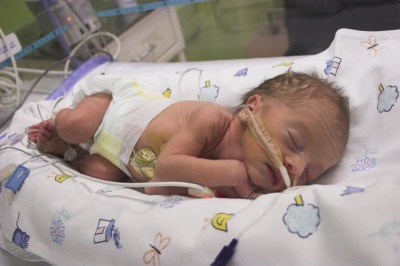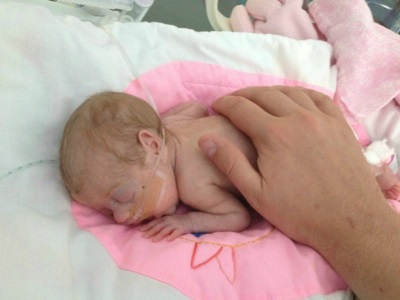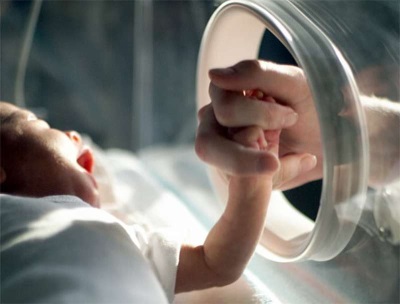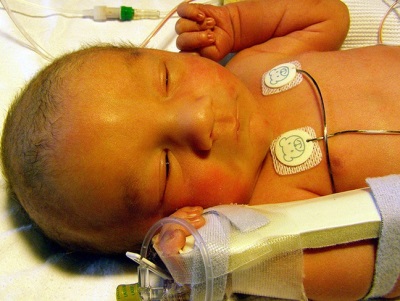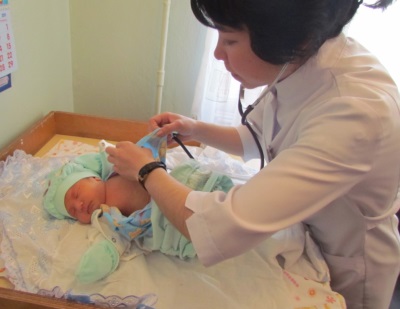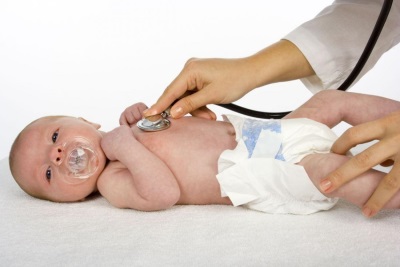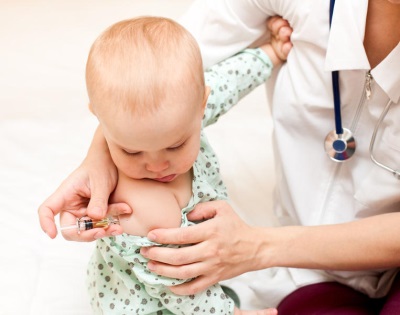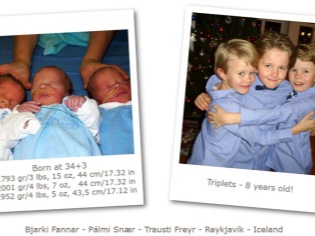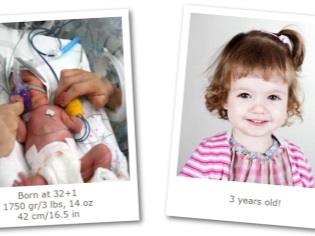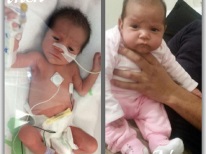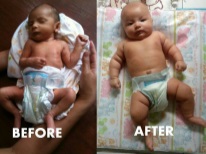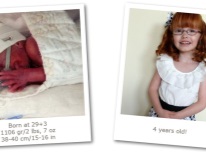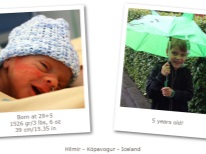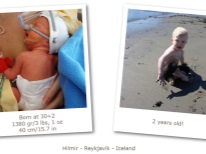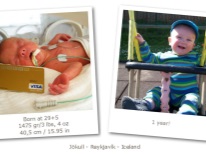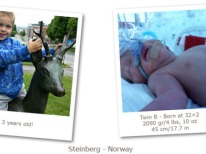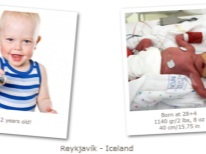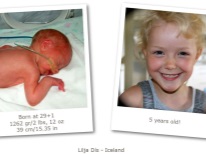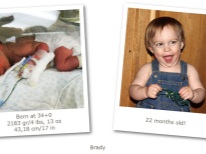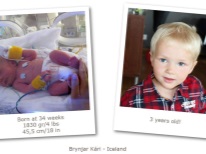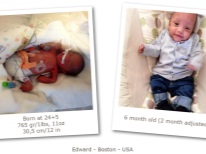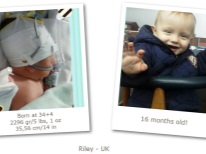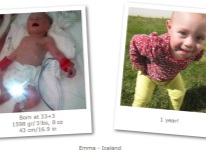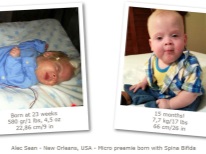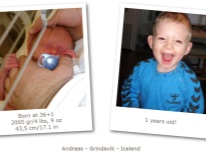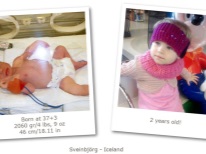Premature baby
Parents of babies born prematurely have to face various problems, including difficulties in nurturing the crumbs in the maternity hospital and creating the right conditions at home, establishing breastfeeding or selecting the right mix, regular visits to the karapuz future health. However, they must always remember that with increased attention to the baby and proper care, they will be able to help the baby to “catch up” with their peers faster and grow into a healthy and cheerful baby, which is confirmed by the popular before and after photos.
More similar photos you can see in the photo gallery at the end of the article.
What baby is considered premature?
Official medicine treats babies as premature if they are born on gestational age less than 37 weeks. These babies have lower height and weight, and organs are immature.
The reasons
The factors causing preterm birth, consider:
- Neglect of the medical accompaniment of pregnancy.
- The presence of pregnant habits.
- Inadequate or unbalanced nutrition of women during pregnancy.
- The age of the future mother or future father is less than 18 and more than 35 years old.
- Work pregnant in hazardous conditions.
- Low weight pregnant (less than 48 kg).
- Living future mothers in poor living conditions.
- Bearing in an unfavorable psychological environment.
- Abortion is in the past.
- Multiple pregnancy.
- The occurrence of preeclampsia during pregnancy.
- Premature detachment of the placenta.
- Short interval between births (less than two years after previous births).
- The incompatibility of the blood of the baby and the mother for the Rh factor.
- Gynecological inflammatory diseases of the mother.
- Malformations of the female genitals.
- Extragenital diseases in a pregnant woman, for example, hypertension, pyelonephritis or diabetes.
- Operations and injuries of the expectant mother.
- Acute infections during pregnancy.
- Genetic or chromosomal disease in the fetus.
- Infection of the infant during intrauterine development.
- Severe malformations of the baby.
Prematurity classification
Separation on the degree of prematurity is based on the gestational age on which the baby was born, as well as on such physical parameters of the toddler as weight and body length. There are such degrees of prematurity:
- First - a baby is born at 36-37 weeks of gestation with weight from 2 to 2.5 kg and body length from 41 to 45 cm.
- The second - the baby appears for a period of 32 to 35 weeks, its body weight is less than 2 kg, but more than 1.5 kg, and body length - from 36 to 40 cm.
- Third - the baby is born at 28-31 weeks of gestation with weight from 1 to 1.5 kg and body length from 30 to 35 cm.
- Fourth - the baby is born in the period up to 28 weeks of pregnancy with a mass less than one kilogram and body length less than 30 cm.
The most unusual and truly magical stories about the survival of premature babies here:
Signs of
Appearance
Compared to term-born babies, premature babies are different:
- Thinner skin.
- Fewer subcutaneous fat or lack of it.
- Large head size in relation to the body.
- Large size belly and low navel location.
- Uncovered small fontanel.
- Very soft ears.
- Thin nails that may not completely cover the phalanges of the fingers.
- Open genital slit in babies-girls.
- Not having time to descend into the scrotum testicles in boys.
- By the later falling off of the umbilical cord residue.
These signs are the more pronounced, the higher the degree of prematurity, and in infants with the first or second degree, many of them may be absent.
Anatomical and physiological features
The degree of prematurity affects the functioning of organ systems of a prematurely born baby, because the smaller the fetus was in the mother's womb, the more its organs did not have time to form to a state that allows it to quickly adapt to life after birth.
- Prematurity is more frequent than babies born on time, which is associated with narrow upper respiratory tracts, a more flexible chest and a higher location of the diaphragm. In addition, light tots are not mature enough, which causes the frequent occurrence of pneumonia and apnea.
- Due to the premature birth of the infant, the circulatory system of the infant may not be fully formed. As a result, there are various cardiac pathologies that worsen the condition of the crumbs. And since the vascular walls are more fragile and penetrable, hemorrhages often appear in babies.
- The brain, even with deep prematurity, is completely formed, but the pathways in the last stages of pregnancy are still developing, therefore, babies born ahead of time nerve impulses are poorly carried to different tissues. If the baby has a damaged nervous system, its physical activity will be reduced, as well as muscle tone. Reflexes in such a child may be depressed or absent altogether, often tremor is observed.
- The mechanisms that regulate the production and waste of heat in the body are poorly developed in a premature infant. Prematurely born children lose heat faster, and it is produced in their body with great difficulty. In addition, due to underdeveloped and non-functioning sweat glands, babies can easily overheat.
- The digestive tract of a premature toddler also works worse than that of term babies. This is primarily due to insufficient production of enzymes and gastric juice, as well as dysbiosis of the intestinal microflora. Besides, The motor function of the GTC suffers due to the deteriorated conduction of nerve impulses, which leads to a slowdown in the movement of food through the intestines.
- In the bones of premature babies after childbirth, mineralization processes continue, which is the reason for the additional prescription of calcium to babies. Have such babies increased tendency to develop rickets and pelvic dysplasia.
- Due to immature kidney function, premature babies quickly show signs of dehydration or swelling.if care of the baby is inadequate.
- The endocrine system with incomplete working is defective, because of what hormones are released in insufficient quantities, and the glands are quickly depleted.
Consequences of prematurity and vitality
The survival rate of premature babies depends on the duration of the pregnancy and the reasons that provoked the birth. If those born on the 23-week period survive only in 20-40% of cases, then babies with a gestation period of 24-26 weeks survive 50-70% of cases, and the survival rate of children whose development period is more than 27 weeks exceeds 90%.
Babies whose birth occurred earlier than expected, gain weight and grow in length very intensively.. Many of them catch up on full-term peers in these indicators by 1-2 years, but there are kids, the difference between them and their peers is smoothed out only by 5-6 years of age.
Anemia with prematurity develops more quickly. The risk of sepsis and purulent infections of the bones, intestines, or meninges in premature babies is increased. In older children, children born prematurely are more likely to have neurological pathologies, vision or hearing problems, frequent ARVI, and problems with the genitals.
Jaundice prematurely born babies are more pronounced and last longer. This physiological condition resulting from the breakdown of fetal hemoglobin usually passes by 3 weeks of age, but in many premature babies requires treatment, for which phototherapy is mainly used.
Extreme prematurity
So called the state of babies with a weight less than 1 kilogram. They are born in less than 5% of prematurity cases, often cannot breathe on their own and require artificial and medical support. Even if these babies are nursed, the percentage of disability and the appearance of various complications in these children is very high.
Deep prematurity
This condition is noted in babies body weight during premature birth is 1-1.5 kg. To get out of such babies, it is required to apply IVL, to give them oxygen, to introduce food into a vein and through a probe. In order for the little one to grow and develop faster, amino acids, glucose, hormonal agents and other substances are administered to him.
7 months
At this stage of pregnancy babies are born with a weight of 1.5-2 kg, but most of them cannot function independently. The karapuzs are placed in incubators with the right temperature and humidity, they are given the necessary examinations and provide medication support. After gaining weight up to 1.7 kg of the baby is transferred to the crib, which is heated. When a child gains weight up to 2 kg, he no longer needs heat support.
8 months
Infants born on such a period, as a rule, have a weight of 2-2.5 kg and can independently suck and breathe. They have an increased risk of apnea, so the babies are observed for some time in the hospital, but in the absence of complications and fast weight gain to normal, the baby is sent home with newly made parents.
How premature babies live and develop after birth in modern perinatal centers is described in the video:
Clinical examination
Premature babies discharged home must be constantly monitored by a pediatrician.
Measurements and examinations are carried out once a week during the first month after discharge, then every other week until 6 months of age - once every two weeks, and from 6 months to a year - every month. The baby is prescribed by a surgeon, a neurologist, a cardiologist, an orthopedic surgeon and an ophthalmologist, and a psychiatrist and a speech therapist over the age of one year.
What is the weight of the discharge?
As a rule, mother returns home with a newborn baby after the weight of the baby has increased to at least 2 kg.. Also for discharge it is important that the baby has no complications, thermoregulation has improved and the baby does not need support for the heart and breathing.
Care features
Babies whose birth has occurred prematurely require special care. They are gradually nursed with the help of neonatalogs and pediatricians, first in the hospital, then in the hospital, and then at home under the supervision of specialists.The most important components of baby care:
- Ensure optimum temperature and humidity in the room.
- To carry out rational treatment.
- Provide adequate feeding.
- Ensure contact with the mother using the "kangaroo" method.
- After discharge limit contact with strangers.
- Bathe and walk with the baby after the permission of the doctor.
- Perform gymnastics with the baby and conduct massage courses after the permission of the pediatrician.
A few tips on how to avoid problems in the development of premature babies are described in the video:
What if there are disturbing symptoms?
If the mother is worried about something, she should definitely seek medical help. A specialist will be needed when:
- Baby's unwillingness to suckle or eat from a bottle.
- Bouts of vomiting.
- Long jaundice.
- Constant loud cry.
- Stop breathing
- Strong pallor.
- A child’s painful reaction to sounds, looks, or touches over the age of 1.5 months.
- Lack of a response look at the age of more than 2 months.
Vaccination: when to get vaccinated?
It is permissible to vaccinate a premature baby only when the baby is strong enough and its body weight increases.
BCG vaccination in the hospital to children with a weight of less than 2 kg do not. It is shown when gaining weight up to 2500 g, and if there are contraindications, it can be delayed for 6-12 months. The timing of the start of the introduction of other vaccines should be determined by the pediatrician taking into account the health and development of the toddler.
Opinion E. Komarovsky
As is well known, a popular pediatrician recommends raising children in the first year of life so that the children do not overheat. Komarovsky always focuses on frequent airing, air moistening up to 50-70% in the nursery and maintaining the temperature in the room not higher than + 22 ° С.
However, for premature babies, his recommendations vary significantly. Komarovsky supports colleagues in the opinion that the thermoregulation in such babies is poorly developed, therefore a higher temperature of the air in the room immediately after discharge (not below +25 ° C), in his opinion, is a necessity.
Until the crumb gains weight up to 3000 g, and its age will not be 9 months after conception, all extreme experiments (in this case, reducing the air temperature to the recommended indicators for full-term babies by Komarovsky) are prohibited.
Tips for parents
- You should not look for blame for the fact that the baby was born prematurely, better focus on current problems and help the baby to adapt to the new life, supporting other family members.
- Try to communicate more with the baby as soon as the doctor allows you to take the baby in your arms. Keep in mind the high need for premature in close physical contact with parents. This will help the little one to gain weight faster and accelerate mental development.
- Take a photo and keep a diary of life karapuz. In the future, it will be an interesting family value.
- Remember that each baby develops individually, therefore, do not compare the prematurely-born baby to any other premature babies, or babies born in time.
- Ask the doctors about all points of interest, ask for clarification of terms and explain what diagnoses have been made to the baby.. This will help you in organizing the regimen, care and activities with the growing baby after discharge.
Photo "Before and after"
About the features of care for premature babies, see the following video.
